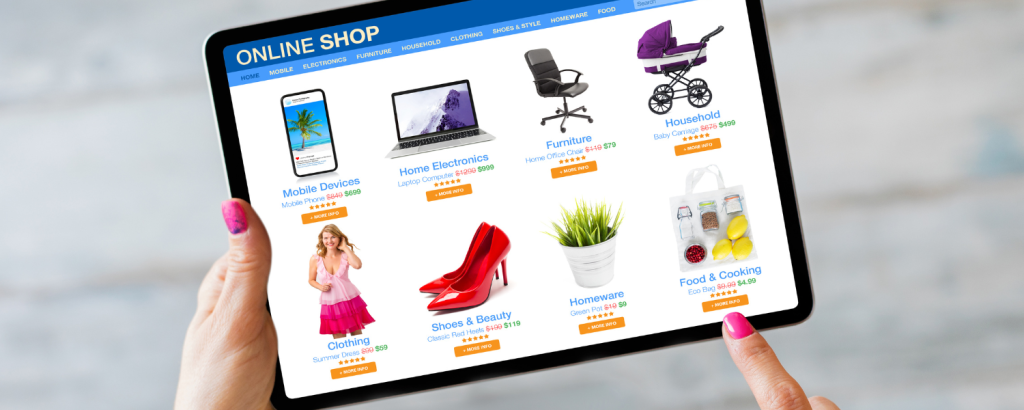
User Review
( votes)Online retailers face unique challenges, from managing their e-commerce platforms to optimizing marketing strategies and handling inventory efficiently. To thrive in this competitive landscape, it’s crucial for online retailers to harness the power of various tools that can simplify operations, boost visibility, and enhance the customer experience.
In this article, we will explore three essential types of tools that are indispensable for online retailers. From e-commerce platforms to marketing and SEO tools and inventory management systems, we’ll delve into the key tools that can help online retailers not only survive but thrive in the digital marketplace. Whether you’re an established e-commerce business or just starting, these tools are essential to your success, and we’ll guide you through their significance and how to leverage them effectively.
Type 1: E-commerce Platforms and Website Builders
E-commerce platforms and website builders serve as the foundation for online retailers, providing the infrastructure needed to establish and operate an online store. Popular e-commerce platforms like Shopify, WooCommerce (built on WordPress), and BigCommerce offer a range of benefits that are essential for the success of online retailers.
E-commerce platforms prioritize user-friendliness, simplifying the process of setting up online stores for retailers without advanced technical expertise. They also grant access to a diverse selection of customizable templates and themes, empowering retailers to fashion distinctive and branded online storefronts. These platforms ensure the security of customer transactions and data through their robust payment processing solutions. Additionally, retailers can streamline inventory management by overseeing product stock levels and receiving alerts for low-stock items with ease. Lastly, e-commerce platforms are optimized for search engines, enhancing retailers’ online visibility and expanding their reach to a broader audience.
E-commerce platforms furnish an array of professionally crafted templates and themes that can be effortlessly tailored to align with a retailer’s branding identity. These platforms simplify product management, enabling retailers to easily add, edit, and arrange products, including images, descriptions, pricing, and variations. Integration with multiple payment gateways ensures that customers can securely make payments using their preferred methods, such as credit cards or digital wallets. Furthermore, online stores constructed with these platforms are inherently mobile-responsive, guaranteeing a seamless shopping experience across smartphones and tablets. Built-in SEO tools, encompassing customizable meta tags, URL structures, and sitemaps, empower retailers to enhance their search engine rankings. Retailers can also leverage various marketing and sales features, such as promotions, discounts, and sales campaigns, while seamlessly integrating with email marketing tools for effective customer engagement.
The availability of detailed analytics and reporting equips retailers with insights to monitor sales and website traffic and make informed data-driven decisions. Lastly, e-commerce platforms readily facilitate third-party integrations with diverse apps and extensions, expanding functionality and elevating the overall customer experience.

Type 2: Marketing and SEO Tools
Marketing tools encompass a wide range of software and resources designed to assist online retailers in reaching and engaging their target audience effectively. These tools include email marketing software, which enables retailers to create, schedule, and automate email campaigns, keeping customers informed about promotions, new products, and updates. Social media management tools streamline the process of managing and scheduling posts across various social media platforms, helping retailers maintain an active and engaging online presence. Additionally, SEO (Search Engine Optimization) tools are crucial for enhancing a retailer’s online visibility. They provide insights into relevant keywords and on-page optimization suggestions and track website performance, allowing retailers to optimize their content and website structure to rank higher in search engine results. Overall, these marketing and SEO tools play a pivotal role in expanding a retailer’s online reach, driving traffic, and fostering meaningful engagement with its target audience.
These tools can significantly aid online retailers in reaching and engaging their target audience in several ways:
- 1. Email Marketing Software: Email marketing is a direct and personalized way to communicate with customers. Retailers can segment their email lists based on customer preferences and behavior, sending tailored messages, product recommendations, and exclusive offers. Automation features allow for timely follow-ups, cart abandonment reminders, and customer feedback requests, keeping customers engaged and informed.
- 2. Social Media Management Tools: These tools enable retailers to maintain a consistent and active presence on various social media platforms. Retailers can schedule posts, engage with followers, and analyze performance metrics. By crafting engaging and shareable content, retailers can expand their reach and build a loyal online community. Social media tools also help in monitoring brand mentions and customer feedback, allowing for timely responses and issue resolution.
- 3. SEO Tools: SEO is crucial for improving a retailer’s visibility in search engine results. SEO tools provide insights into keyword research, helping retailers identify relevant keywords and phrases that their target audience is searching for. By optimizing website content, meta tags, and site structure, retailers can rank higher in search results, attracting organic traffic. Regular performance tracking and reporting enable adjustments to SEO strategies for maximum impact.

Type 3: Inventory and Order Management Software
Inventory and order management are pivotal for online retailers, as they directly impact customer satisfaction, operational efficiency, and profitability. Inventory management tools allow retailers to monitor and control their stock levels, ensuring products are available when customers need them. Efficient order processing systems facilitate the seamless handling of customer orders from placement to fulfillment.
Inventory management tools help retailers track their stock levels in real time. They provide insights into product availability, reorder points, and sales trends. Benefits include:
1. Optimized Stock Levels: Retailers can avoid overstocking or understocking by setting reorder points and automating restocking processes.
2. Reduced Holding Costs: Efficient inventory management minimizes storage costs associated with excess stock.
3. Accurate Demand Forecasting: Retailers can better anticipate customer demand, ensuring popular items are always available.
4. Prevent Stockouts: Avoiding out-of-stock situations leads to increased customer satisfaction and prevents lost sales.
Order processing systems streamline the entire order lifecycle, from order placement to delivery confirmation. Benefits include:
1. Efficient Order Fulfillment: Retailers can quickly process and ship customer orders, reducing order processing time.
2. Accurate Order Tracking: Customers receive tracking information, allowing them to monitor their orders in real time.
3. Improved Communication: Retailers can communicate with customers regarding order status, delays, or issues, enhancing transparency.
4. Inventory Updates: Orders are automatically deducted from available stock, preventing overselling and errors.
These tools work together to enhance operational efficiency and customer satisfaction. By ensuring products are consistently in stock, retailers prevent stockouts that can frustrate customers. Timely and accurate order processing leads to faster deliveries and improved customer experiences.
Conclusion
The world of online retail is a dynamic and competitive arena where the strategic use of essential tools is paramount. We’ve explored three crucial types of tools: E-commerce Platforms and Website Builders, Marketing and SEO Tools, and Inventory and Order Management Software. These tools collectively empower online retailers to establish a robust online presence, engage their target audience effectively, and optimize their operational efficiency. By harnessing these tools, online retailers can not only navigate the challenges of the digital marketplace but also flourish and deliver exceptional customer experiences, ensuring their continued success in the ever-evolving e-commerce landscape.







